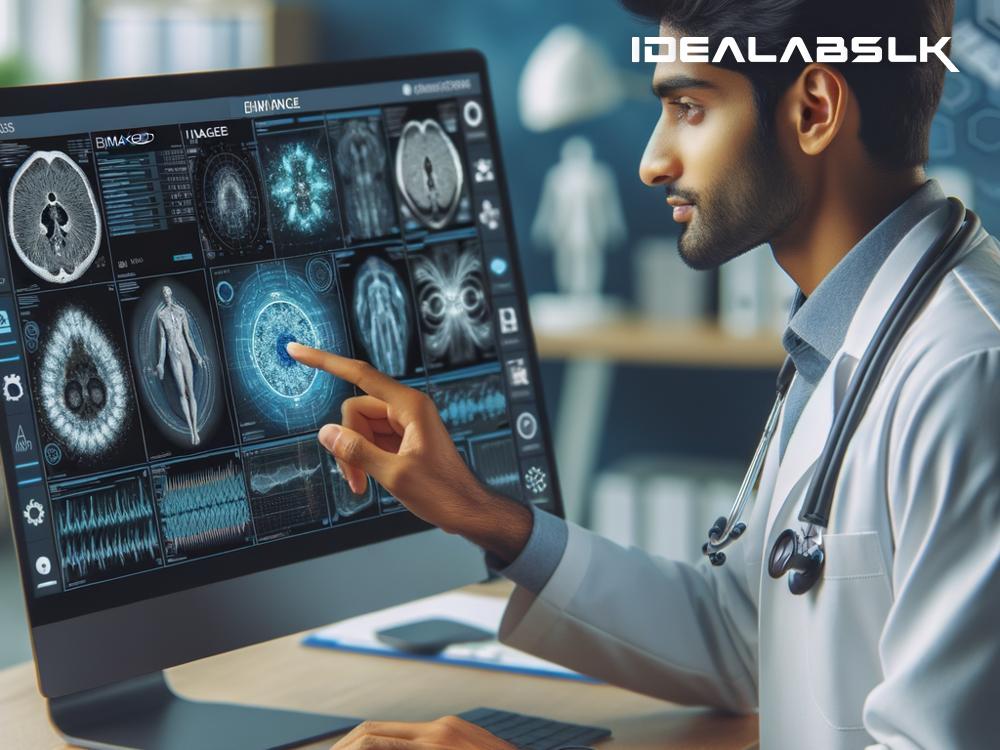How AI is Redefining Medical Imaging: A Route to Speedier, Sharper Diagnoses
In the rapidly evolving landscape of healthcare, Artificial Intelligence (AI) is playing a starring role, especially in transforming how we interpret medical images. Gone are the days when diagnosing diseases relied solely on the keen eyes and judgment of radiologists. Today, AI is setting new standards, making diagnoses faster and more precise than ever before. Let's explore how AI is revolutionizing medical imaging, making it an exciting era for healthcare professionals and patients alike.
The Groundbreaking Shift
Medical imaging, encompassing X-rays, MRIs, CT scans, and more, is crucial in diagnosing a myriad of conditions. Traditionally, these images required manual examination, a time-consuming process with room for human error. Enter AI: a technology that thrives on the capability to swiftly analyze vast datasets, recognizing patterns and anomalies with astonishing accuracy. This is where AI shines, bringing about a seismic shift in diagnostic practices.
Accelerating Diagnoses
The most immediate benefit of integrating AI into medical imaging is the significant reduction in time it takes to arrive at a diagnosis. AI algorithms can sift through hundreds of images in the blink of an eye, pinpointing concerns that call for a closer look. This speed is vital, especially in emergencies where time is of the essence, drastically cutting down the waiting period for patients and potentially saving lives by enabling quicker interventions.
Enhancing Accuracy
Accuracy in diagnosis is non-negotiable. With AI, the precision of interpreting medical images has seen a remarkable improvement. These smart algorithms are trained on extensive databases of images, enabling them to detect nuances and patterns invisible to the human eye. Whether it’s identifying early stages of cancer or noticing slight changes indicating neurological disorders, AI’s meticulous analysis minimizes the risk of oversight, leading to more reliable diagnoses.
Overcoming Human Limitations
AI is not prone to fatigue or influenced by subjective biases, unlike its human counterparts. Radiologists, despite their expertise, can have off-days or be overwhelmed by heavy caseloads, potentially affecting diagnostic accuracy. AI tools provide consistency in analysis, working tirelessly around the clock. They serve as invaluable assistants, augmenting the radiologists' capabilities, rather than replacing them, ensuring a higher standard of care.
Enabling Personalized Medicine
Every patient is unique, and AI’s prowess in sifting through complex datasets extends to tailoring medical interventions. By analyzing medical images in conjunction with a patient’s genetic information and medical history, AI can help chart a personalized treatment plan. This bespoke approach not only potentially increases the effectiveness of treatments but also minimizes side effects, paving the way for more patient-centric healthcare.
The Journey Ahead
Embracing AI in medical imaging comes with its set of challenges, including ethical considerations, data privacy concerns, and the need for robust training datasets. There is also the imperative of bridging the gap between technology and human skillsets, ensuring healthcare professionals are equipped to work alongside AI.
As we navigate these challenges, the horizon looks promising. Continuous advancements in AI are set to unlock further potentials, from predicting disease outcomes to integrating real-time imaging analysis during surgical procedures. The collaborative synergy between AI and healthcare professionals is poised to redefine patient care, making it more efficient and effective.
Closing Thoughts
The fusion of AI and medical imaging is a beacon of progress in healthcare, heralding an era where faster, more accurate diagnoses become the norm. This technological innovation stands to benefit not just healthcare providers, but more importantly, patients, offering hope for quicker recovery times and better health outcomes.
As we stand on the brink of this exciting revolution, it’s pivotal to embrace these changes, championing a future where AI and human expertise combine to unlock new frontiers in medicine. The journey of AI in enhancing medical imaging is just beginning, but its impact will resonate for generations to come, transforming the very fabric of healthcare as we know it.
The promise of AI is not just in revolutionizing healthcare processes but in fostering a world where early detection and tailored treatments become more accessible for all, ultimately charting a path towards a healthier, brighter future for humanity.

